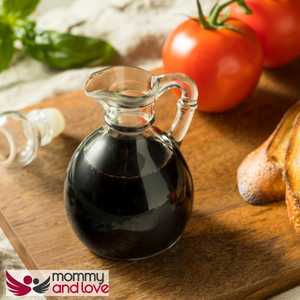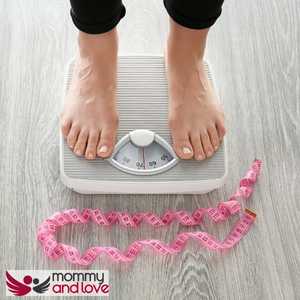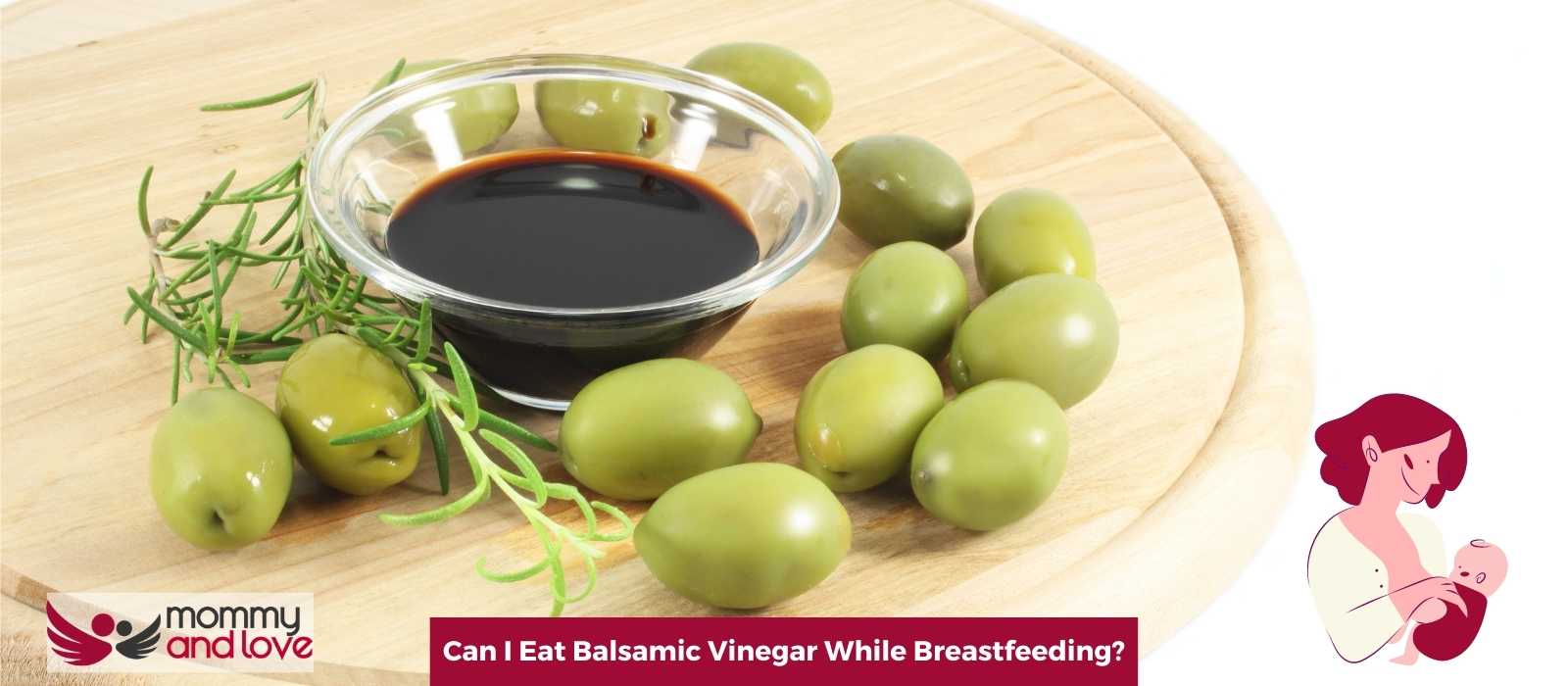If you’re a breastfeeding mother, you may be wondering if it’s safe to eat balsamic vinegar. Are there any health benefits to consuming this type of vinegar while nursing? And what about the taste – will your baby like it, too? Here’s everything you need to know about eating balsamic vinegar while nursing.
Can I eat balsamic vinegar whilst breastfeeding? Yes, small amounts of balsamic vinegar are okay to eat when breastfeeding. Some people have suggested it may boost milk supply but there is little to no evidence on this and you need to be careful regarding the amount you consume.
What Is Balsamic Vinegar?

Balsamic vinegar is a slightly sweet, dark, and highly flavored vinegar that is used to add flavor to foods such as salad dressings, marinades, and sauces.
It can be reduced to a glaze and drizzled over strawberries, swirled into risotto, or thrown in the oven with Brussels sprouts or red onions to caramelize the sugars.
What Is the Difference Between White Vinegar and Balsamic Vinegar?
Unlike balsamic vinegar, which comes in a variety of flavors to foods, white vinegar is just white vinegar. The only variation would be in the acid’s strength, which you wouldn’t detect when cooking. Because of its potency, white vinegar should be used with caution.
What Are the Benefits of Balsamic Vinegar While Breastfeeding?
There are many benefits to consuming balsamic vinegar in a mother’s diet. Some of these benefits include:
Boosting Immunity
Balsamic vinegar can help to boost your immune system, which can be beneficial while you are breastfeeding. It is also high in antioxidants, which aid in the prevention of chronic illnesses and stimulate the immune system. It also aids in the breakdown of free radicals in the body, which protects cells from damage.
Helping with Weight Loss

Balsamic vinegar, like the rest of the vinegar family, is known for its anti-obesity properties. As previously said, it includes probiotic elements that help a breastfeeding mom feel satiated for extended periods of time.
Unlike other flavoring agents such as butter and mayonnaise, it is fat-free.
Aids in Digestion
It can help to improve digestion, which can be helpful while you are breastfeeding. Acetic acid, which includes probiotic bacteria strains, is the principal active ingredient in balsamic vinegar. These probiotics do more than only preserve food; they can also promote healthy digestion and gut health. There are also immune system benefits to harboring these good bacteria, which are referred to as gut biome.
Provides Important Nutrients
It contains important nutrients that can benefit both you and your baby. It contains calcium, phosphorus, potassium, magnesium and acetic acid.
Reduces Symptoms of Acid Reflux
If you suffer from acid reflux while breastfeeding, it can help to reduce these symptoms.
Diabetes Control
Balsamic vinegar is one of several kinds of vinegar known to minimize blood glucose increases. According to one study, taking vinegar in moderation before eating can assist persons with type 2 diabetes in better managing their blood sugar. However, because this study was only conducted on a limited group of people, more research will be required to confirm these findings. It should not be used in place of a low-sugar diet or other doctor-recommended diets.
What Are the Potential Risk and Health Concerns of Balsamic Vinegar?
There are some potential adverse effects and health concerns associated with balsamic vinegar, including:
Allergic Reaction
Balsamic vinegar can cause an allergic reaction in some people. If you experience any symptoms such as a rash, swelling, or difficulty breathing after its consumption, seek medical attention immediately.
Interaction with Medications
Balsamic vinegar can interact with some medications, including blood thinners and diabetes medications. If you are taking any medications, be sure to speak with your doctor or medical professional before consuming them.
Digestive Problems
Balsamic vinegar can cause digestive problems in some people, such as diarrhea or stomach cramps. If you experience any of these symptoms, stop taking these foods and speak with your doctor.
Kidney Problems
Balsamic vinegar can worsen kidney problems in some people. If you have kidney problems, speak with your doctor before consuming them.
How Much Balsamic Vinegar Can I Consume When Breastfeeding?
You can safely consume moderate amounts of balsamic vinegar while breastfeeding around two to three servings. However, it should not be consumed in large quantities and you should always consult with your doctor before consuming any new food or drink while breastfeeding. This is especially important if you are a nursing mother of a newborn or premature baby.
Does Balsamic Vinegar Affect Breast Milk Production?
There is no actual evidence that suggests it can affect breast milk. However, there is anecdotal evidence from nursing mothers saying that they experienced an increase breast milk supply after eating healthy foods that contain balsamic vinegar.
Does Balsamic Vinegar Affect Breastfeeding?
Some people believe that it can also improve milk supply in lactating mothers and help relieve the pain of breastfeeding.
It is not clear if balsamic vinegar actually increases the amount of milk a woman produces or just reduces the pain of breastfeeding.
But, there are some indications that it may help with milk production and some women have reported an increase in their supply after adding balsamic vinegar to their diet.
Can a Breastfeeding Baby Be Allergic to Balsamic Vinegar?
Some people are allergic to balsamic vinegar. However, it is uncommon for babies to be allergic to this type of vinegar. The most likely cause of an allergic reaction in infants would be due to the presence of sulfites or sulfates in the food.
A vinegar sensitivity or intolerance, while not a real food allergy, can elicit many of the same symptoms as other food allergies in breastfed infants. Asthma, hives, itchy skin, and stomach ache are some of the most prevalent symptoms.
Take Away on Balsamic Vinegar for Breastfeeding Mothers
Like pregnant women, most women who are breastfeeding should be cautious when consuming certain foods. Other foods might enter your baby’s system through your breastmilk.
Balsamic vinegar can be an important part of the healthy diet of breastfeeding moms as well as pregnant women. They are perfectly safe and can satisfy your taste buds and provide many essential nutrients that can benefit both you and your baby, while also helping to reduce symptoms of acid reflux or digestive problems.
However, there are some potential risks associated with them including allergic reactions so make sure to consult with your doctor or healthcare provider before consuming it. also, remember that moderation is key. Consume too much and you could end up with digestive problems of your own.

This article was written by Sandra Baker – full time writer and the mother of four amazing kids (including twins!)
She’s also a breastfeeding counselor and has spent years helping new parents learn how to care for their children. When she’s not writing or caring for her children, Sandra likes to spend time reading and taking walks with her husband.




